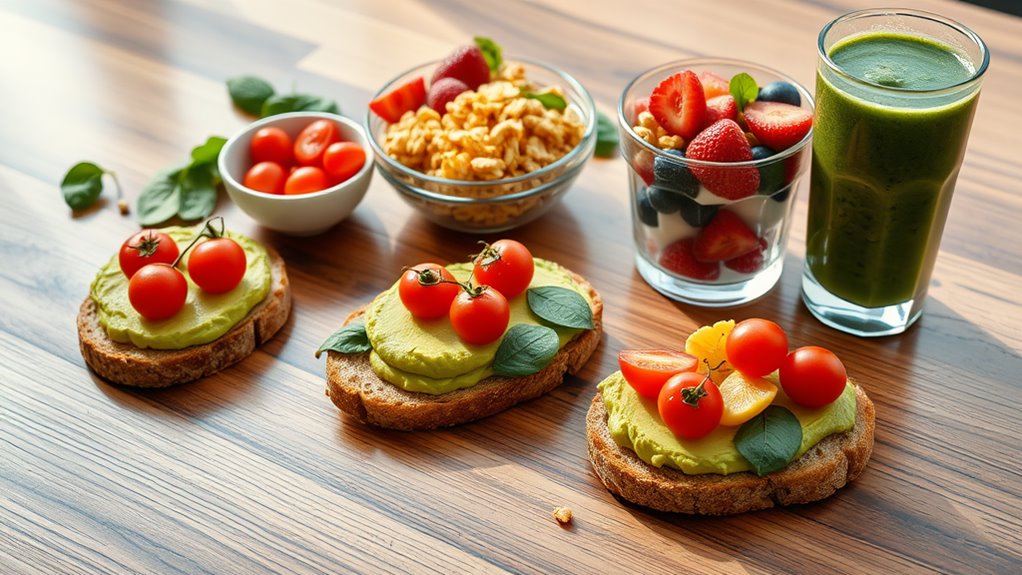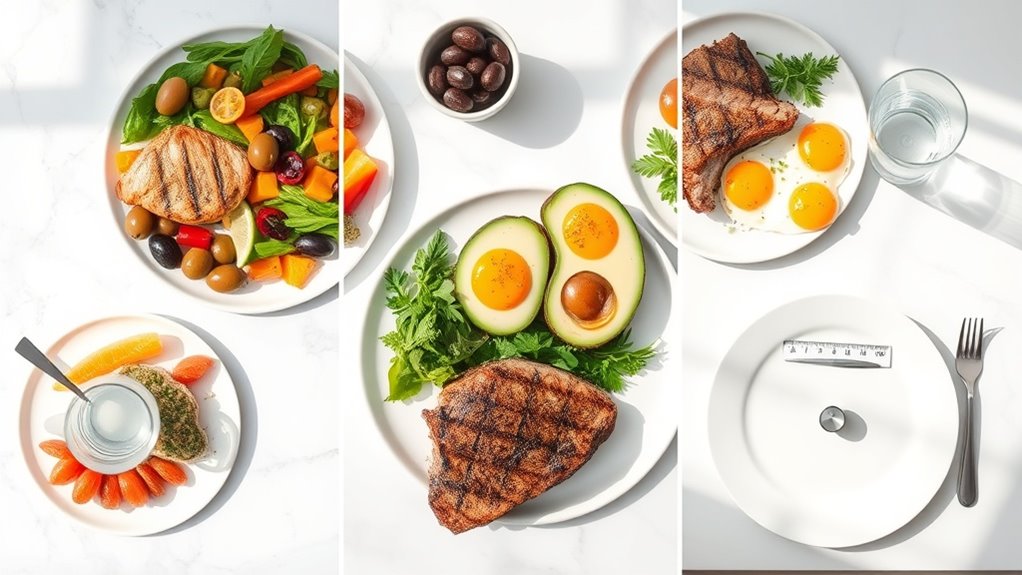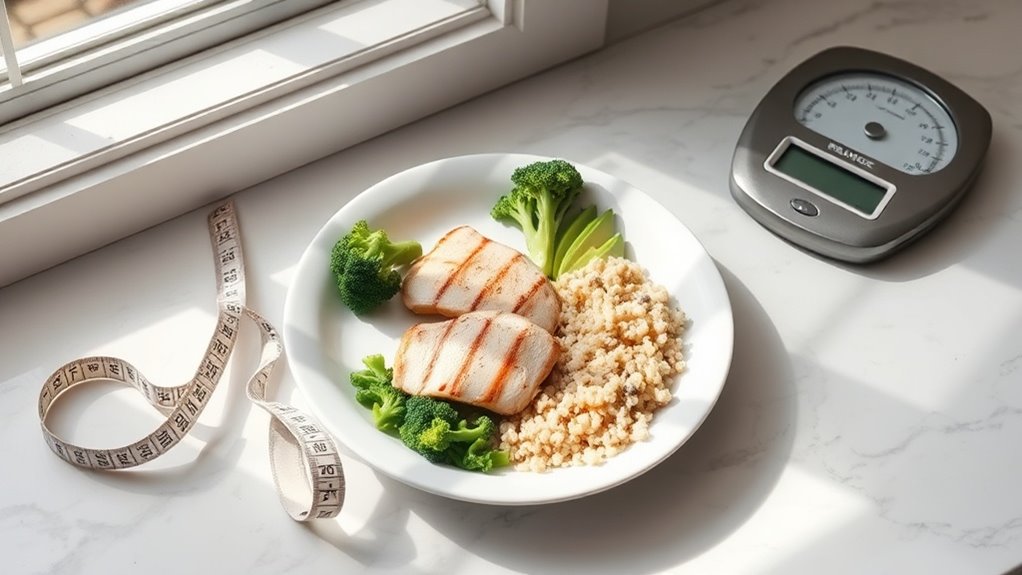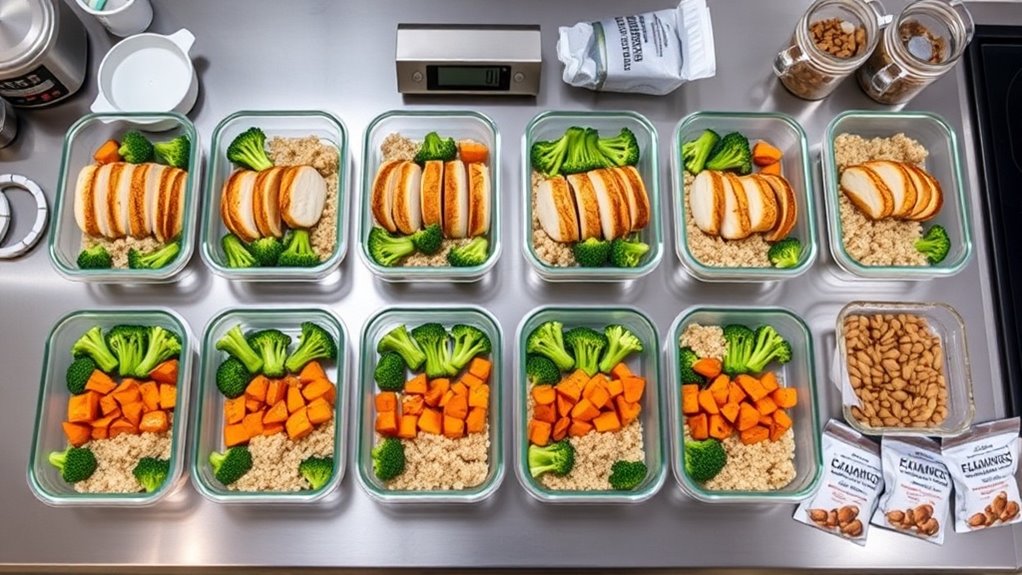These ‘Healthy’ Snacks Are Actually Making You Gain Weight!
You might think you’re making healthy choices by grabbing a granola bar or a fruit smoothie, but these snacks can be misleading. Hidden sugars and oversized portions often turn them into calorie traps that contribute to weight gain. It’s time to rethink what “healthy” really means in your diet. What if the snacks you trust are actually sabotaging your efforts? Let’s uncover the truth behind these seemingly innocent options.
The Granola Bar Deception
While you might think granola bars are a healthy snack choice, they can easily deceive you. Many brands pack in sugars and unhealthy fats, turning what seems like a nutritious option into one of those sneaky snacks that cause weight gain.
You might grab a granola bar on the go, believing it fuels your active lifestyle, but a closer look reveals hidden calories. Often, a single bar can contain as much sugar as a candy bar!
Plus, the portion sizes can trick your mind into thinking you’re eating something wholesome when you’re not. When you want to feel part of a health-conscious community, it’s essential to choose wisely. In fact, many granola bars have hidden sugars that can significantly increase calorie consumption.
Instead of reaching for those granola bars, consider whole foods that truly nourish your body. Remember, it’s about making choices that align with your goals, not just what’s marketed as healthy.
Fruit Smoothies: A Sugar Bomb in Disguise
Fruit smoothies can seem like a healthful choice, yet they often hide a shocking amount of sugar. While you might think you’re sipping on something nutritious, those fruity blends can pack more sugar than a can of soda. Many people in your community enjoy smoothies, but it’s essential to be aware of what you’re consuming.
-
Many store-bought smoothies contain added sugars and syrups.
-
Even homemade versions can skyrocket in sugar with too much fruit or sweeteners.
-
A typical smoothie can easily exceed the daily recommended sugar intake.
Instead of reaching for that fruity drink, consider incorporating whole fruits or opting for a green smoothie with veggies. This is especially important since liquid calories can contribute significantly to weight gain.
You’ll not only feel better, but you’ll also be part of a growing movement that prioritizes mindful eating. Choosing wisely helps you connect with others who seek real health benefits and genuine energy without the sugar crash.
The Truth About Dried Fruits
[Dried fruits can seem like a convenient and healthy snack, but they often come with hidden pitfalls that can derail your weight management goals. While they’re rich in vitamins and minerals, the drying process concentrates their sugars, making them calorie-dense. A small handful of dried mango or raisins can pack more calories than you’d expect, which can lead to overeating.
If you love snacking on dried fruits, it’s essential to pay attention to portion sizes. You might feel like you’re making a healthy choice, but those extra calories can quickly add up. Plus, many brands add sugar or preservatives, further increasing the calorie count. Instead, try opting for fresh fruits when you can. They’re lower in calories and higher in water content, helping you feel fuller without the extra weight gain. Additionally, it’s important to check for hidden sugars in packaged snacks to avoid unnecessary calorie intake.
Low-Fat Yogurt: Not as Healthy as You Think
Although low-fat yogurt might seem like a healthier choice, it can be deceiving when it comes to weight management. Many brands replace fat with added sugars and artificial ingredients to maintain flavor, which can lead to unintended weight gain.
When you think you’re making a smart choice, you may actually be sabotaging your health goals.
Consider these points:
-
High Sugar Content: Many low-fat yogurts are loaded with sugars, making them just as calorie-dense as full-fat options.
-
Increased Cravings: The sugar can spike your insulin levels, leaving you hungrier and likely to reach for more snacks.
-
Lack of Satiety: Without healthy fats, you mightn’t feel as satisfied, leading to overeating later. Additionally, relying on low-fat products may lead to increased cravings for sugar and processed foods, making it harder to stick to your health goals.
Snack Portion Distortion
When it comes to snacking, portion sizes often get overlooked, leading to what experts call “snack portion distortion.” You might think grabbing a handful of nuts or a couple of granola bars is harmless, but those seemingly small servings can pack a surprising number of calories.
It’s easy to lose track when you’re munching while working or binge-watching your favorite show. You’re not alone; many of us underestimate how much we’re actually eating.
Instead of just reaching into the bag, try measuring out a proper serving size. This simple change can help you stay mindful and make healthier choices. Additionally, incorporating high-fiber foods can promote longer satisfaction without the risk of overindulging. Also, consider pairing your snacks with a nutritious option, like fruit or yogurt, to feel satisfied longer without overindulging. By being aware of portion sizes, you’ll not only enjoy your snacks guilt-free but also feel more connected to your wellness journey.
Hidden Ingredients That Sabotage Your Diet
Many snacks marketed as healthy actually contain hidden ingredients that can derail your diet goals. You might feel good about choosing them, but those sneaky additives can pack on the pounds without you even realizing it.
It’s essential to read labels carefully and know what to look for.
-
Added Sugars: These can be disguised under various names, making your “healthy” snack more of a dessert.
-
Trans Fats: Often found in processed snacks, they can increase your risk of weight gain and heart disease.
-
Artificial Sweeteners: While they may have fewer calories, they can trigger cravings and lead to overeating.
Additionally, many “healthy” options can sabotage weight loss efforts due to hidden sugars and unhealthy fats.





